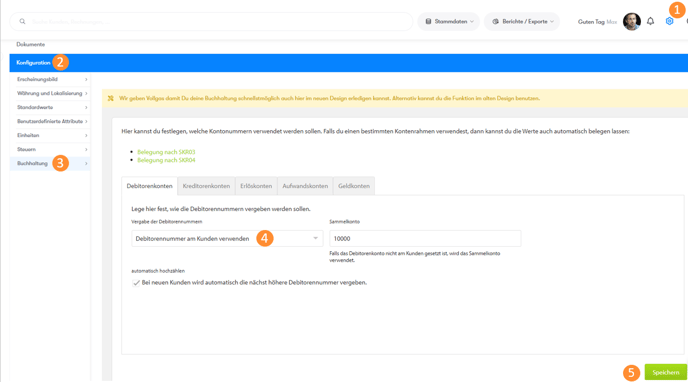Under Reports / Exports > DATEV Export you can create the DATEV export in Billomat.
How does the DATEV export work?
The basic requirement for a DATEV export is that a debtor or creditor number is stored for all customers and suppliers.
Enter customer and vendor numbers manually
For example, you can store the customer number with the customer (at the supplier it works the same way with the vendor number):
- In the navigation above, select Master data > Customers
- Select the desired customer in the overview table
- Far below in the customer handling view in the region Others now you can see where you take the field, account number can deposit

Automatically assign customer and vendor numbers
If you are new to Billomat, the system has the option of automatically assigning an ascending debtor or creditor number.
- Navigate to Settings > Configuration > Accounting (Step 1-3)
- In the drop-down menu in the Accounts Receivable tab, select the Use debtor number to customer setting (step 4). The same process applies to the accounts payable.
- Optional: If you want the numbers to be automatically incremented, check the box next to increment automatically
- Then click Save (Step 5).

The best way to determine all other settings is with your tax advisor.
Create DATEV export
After the basic settings have been made, the export can be created under Reports / Exports > DATEV Export.

You have two options here:
- You carry out the export yourself and send it to your tax advisor
- Your tax advisor accesses your account himself and creates the export
The tax advisor access is free of charge for you from the Business tariff. You can create this under Settings > Administration > User. How does just that you learn in the article Creating tax advisers have access.
In addition to the transaction data, you and your tax advisor can also export the master data or define the period. You can find an example of this in our article on exporting customer contacts.